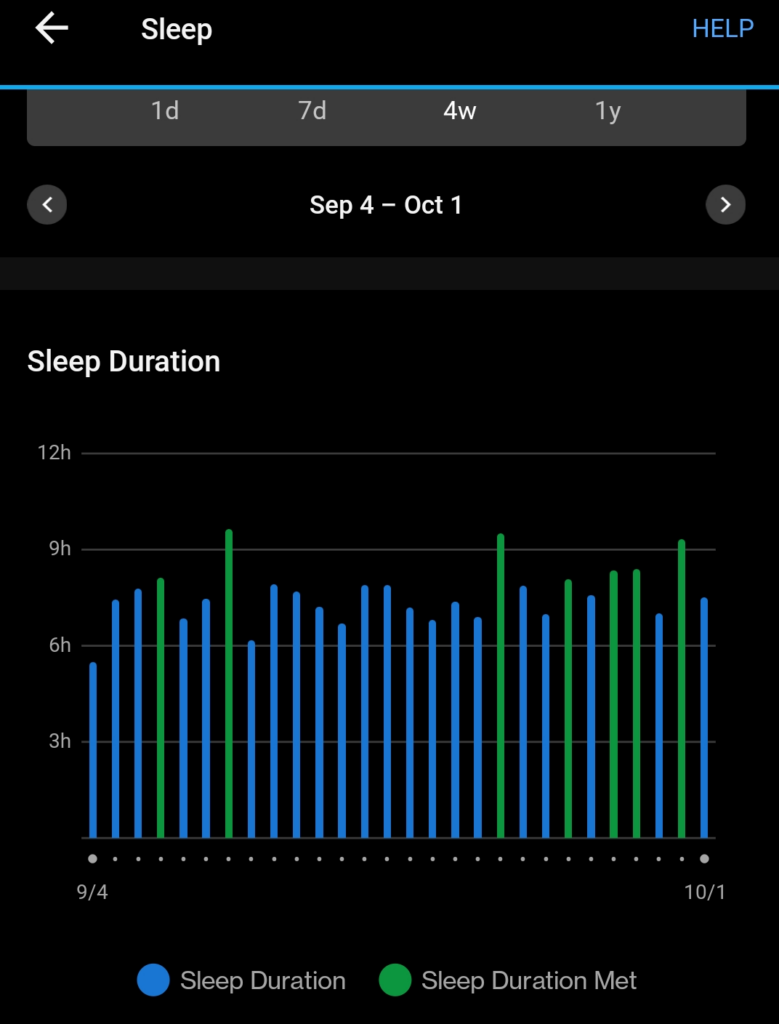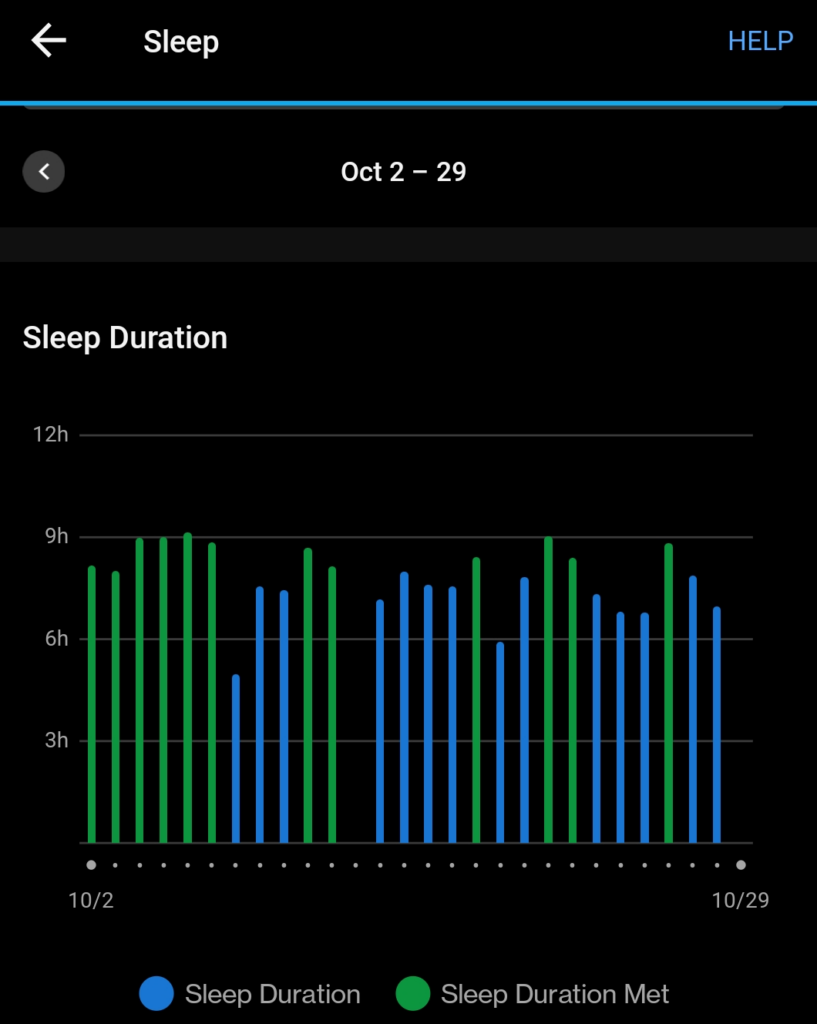Last month I’ve had to take a sick day because I was simply too damn tired. This really annoyed me, but that day I went to bed at 9am (so 3 hours after waking up) and didn’t get back up until 3pm 😴. How did this happen? I’m no longer ‘bothered’ with younger kids that keep me up at night. I also don’t have a job that requires me to be up late. So if nothing is keeping me up, what was I doing wrong? This got my thinking about my sleeping habits. To get to the bottom of this, I started looking into some books around the subject of sleep. I found the book Sleep Smarter by Shawn Stevenson after browsing on my Amazon Kindle. In this post, I’ll share my findings.
The introduction of Shawn Stevenson in the book really got me interested in reading more. He describes he was an avid runner in his younger years. While training with his coach, he broke his hip – without falling 😱. After years of trying to find out how on earth this could happen, the diagnosis said he had a chronic bone issue. Shawn sat on that for a while, but decided this couldn’t be the case. By changing his eating-, drinking- and sleeping habits, he changed his own life, defying what doctors had told him. This really got me hooked on reading more!
The book describes 21 strategies to help you get a better night of sleep. I’m not going to take you through all of them, but I’ll step into three of the most valuable takeaways.
Caffeine curfew
This might sound like an open door as drinking too much coffee can obviously influence your sleep. However, I was only having up to 4 cups of coffee each day. For that reason I was skeptic when I first read the title of chapter 4: Caffeine curfew. However, I still got to learn some important tips.
In this chapter of the book, Shawn describes the quality of your sleep can indeed be largely affected by your caffeine intake. According to research, coffee intake that occurs within 6 hours of getting to bed, can really influence the quality of sleep. Shawn says it can take days for caffeine to ‘wear off’ due to its high ‘half-life’.
Caffeine has a half-life of around 5 to 8 hours (depending upon your unique biochemical makeup).
Shawn Stevenson
To illustrate this ‘half-life’, Shawn draws up the example of a coffee intake of 200 milligrams of caffeine (one to two cups). After 8 hours, you would still have 100 milligrams left in your system. After another 8 hours, it would be 50 milligrams..and so on.. The realization here is that if you drink lots of coffee every day, it can indeed take days before it’s all out of your system.

My coffee intake
I happen to live in a country where coffee is very mainstream. You can get it anywhere on the go, and the Netherlands seems to list as the number 5 of countries with the most coffee intake per person. Although I don’t consider myself as a heavy coffee addict, this new piece of information about coffees ‘half-life’ got me thinking.
Three out of the four days a week (yes I know, I’m dutch 😇), I work from my home office. My morning routine on these days consist of:
- ⏰ 5:55am: Getting up, shower and get dressed
- 🕑 06:15am: Make breakfast
- 🕑 06:20am: Start morning walk (breakfast in hand)
- 🕑 06:55am: Kiss my spouse and kids
- 🕑 07:00am: Start the workday with my first coffee ☕️
- 🕑 07:55am: Wave kids goodbye
- 🕑 08:00am: Coffee #2 ☕️ – then work some more
- 🕑 09:25am: Coffee #3 ☕️ – then attend my team’s standup meeting
As you can see, by the time it’s 🕑 09:30am, I’ve had 3 cups of coffee already. According to the book, the problem arises with the intake of the fourth cup of coffee, which – on the days I’m working from home – sometimes occurs late in the afternoon.
So Shawn, hint taken. I pledge to now take my fourth and final cup of coffee of the day right after lunch, or – even better – not al all.
Sleeping more consistently
One of the other strategies that is mentioned in the book is too strive for consistency in your sleep times. At home, I’m always the last one that steps into the bed at night. My wife normally steps into bed at least 45 minutes before I do and is still in bed when I get up in the morning. Maybe I should make adjustments there.
Sleep duration
I’ve been looking into my sleep statistics and have been trying to improve my sleep duration in october. Below two graphs of my sleep duration in the months September and October.


What is very clear in the pictures is that I’m improving: more green bars in October 🙂. The green bars indicate I have made 8 hours of sleep that night. According to the book it’s not required to always make those 8 hours, but to strive for consistency. So if you decide 7 hours and 30 minutes is enough, try to make that each and every night at a consistent start- and endtime. The difficulty in all this for me is in going to bed on time, with consistency. I’m always the one locking up the house, turning the lights off and then turning in for the night. The time at which I do that fluctuates a lot, which is exactly what I’m trying to improve. My goal is to, at the latest, step into bed at 22:30.
Conclusion
This book really got me thinking that I should be paying more attention to my sleeping habits. The main take-away for me was to see sleep as an important part of staying healthy. Not like a necessary evil.
As I described in this post, consistency is key. I found this to be the main factor in getting quality sleep hours in. Trying to get the hours from 10pm into my daily schedule is a challenge, but should be doable. Less Netflix and more reading should help me get there.
Although not all 21 strategies in the book rang true for me, this book is well worth the read if you happen to have issues with your sleep. It’s an easy read and can definetly help you!
Sleep tight 😴!